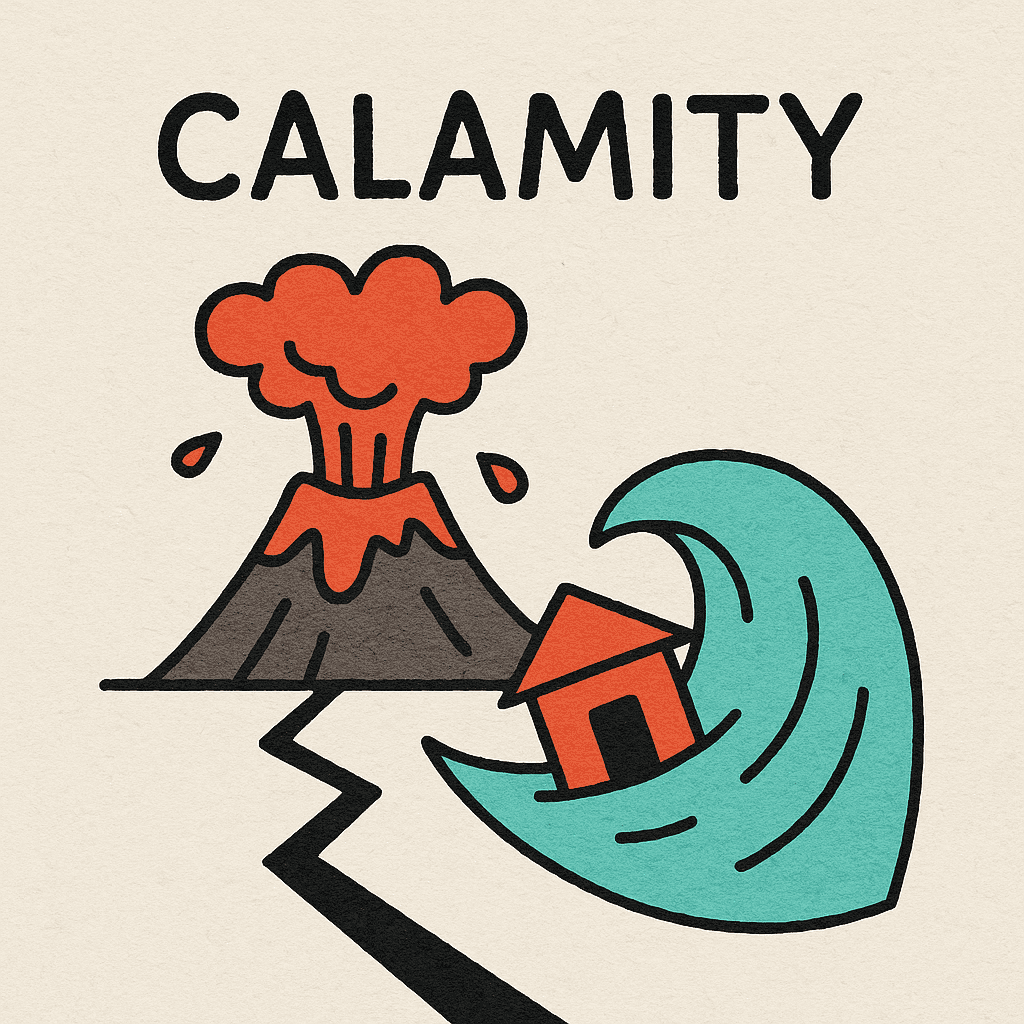Meaning
Calamity means a serious event causing great damage, distress, or disaster.
It often refers to natural disasters, major accidents, or tragic events that cause widespread suffering.
Grammar and Usage
- Part of speech: noun
- Countable/Uncountable: countable (a calamity / several calamities)
- Used to describe events with devastating effects, either literally (natural disaster) or metaphorically (personal tragedy).
Typical structures:
- a natural calamity
- a national calamity
- to suffer a calamity
- to prevent a calamity
Common Phrases
- natural calamity – disaster caused by nature (earthquake, flood, etc.)
- public calamity – a tragedy affecting society or a nation
- economic calamity – a severe economic crisis
- personal calamity – an individual’s misfortune or tragedy
Collocations
- suffer a calamity
- face a calamity
- prevent a calamity
- recover from a calamity
- warn of a calamity
Examples
- The earthquake was a terrible calamity that destroyed thousands of homes.
- Losing her job and her house in the same week was a personal calamity.
- The government acted quickly to prevent an economic calamity.
- The flood turned the small town into a scene of calamity.
- War is one of the greatest calamities humanity can face.
- Scientists warn that climate change could lead to global calamities.
- The shipwreck was a maritime calamity remembered for decades.
- They offered aid to those affected by the recent calamity.
Synonyms or Related
- disaster
- catastrophe
- tragedy
- misfortune
- adversity
Antonym
- blessing
- fortune
- miracle
